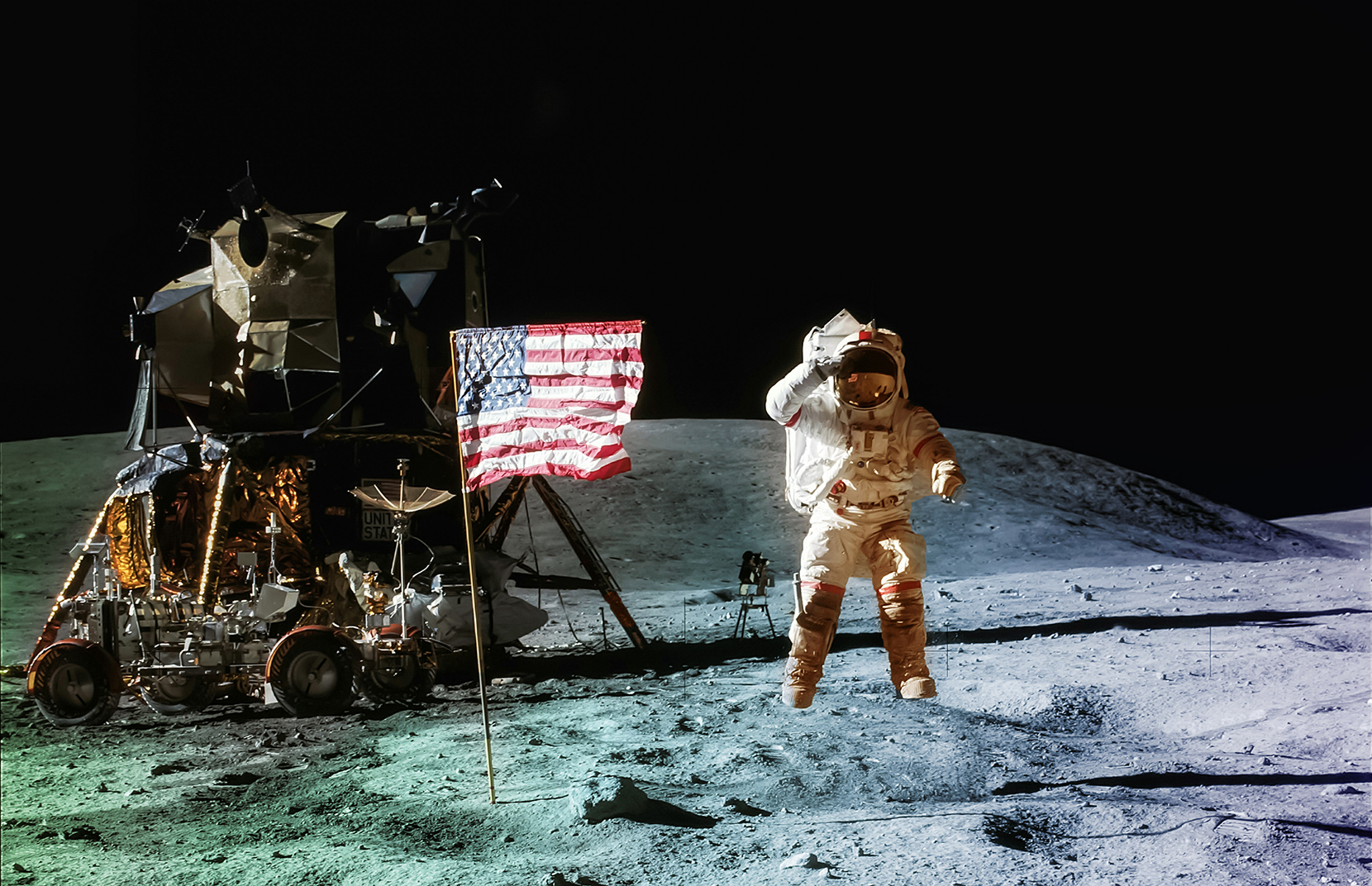In today’s increasingly complex world, organizations can learn from the success of the Apollo space program a half century ago.
In 2019, the U.S. celebrated the 50th anniversary of Apollo 11’s historic lunar landing. The mission fulfilled President John F. Kennedy’s commitment to sending the first human safely to the moon. It also demonstrated the importance of collaboration in achieving a dramatic and ambitious goal.
At its height, the Apollo space program employed 400,000 people, 20,000 industrial companies and 200 universities. Their task — to fly a team of American astronauts 240,000 miles to the moon; land them on its surface, where they would perform a series of experiments; and then return them safely to Earth — required enormous coordination. Scientists and engineers worked simultaneously to develop the three spacecraft needed for the mission: a command module to carry the astronauts; a service module containing oxygen, water and power; and a lunar module used to descend to the moon’s surface. The modules sat on top of a three-stage Saturn V rocket, which lifted the Apollo spacecraft off the ground, thrust it into Earth’s orbit and propelled it into space.
One of the keys to Apollo’s success was George Mueller, who ran NASA’s Manned Space Flight operation from 1963 to 1969. Mueller, an electrical engineer with a Ph.D. in physics, overhauled the management structure of the project. Before his arrival, much of the work had been done independently by three NASA centers that barely talked with one another. Under the restructuring, all three centers reported directly to Mueller, who set up a program office in Washington and each of the centers. The new structure facilitated the development of the many systems needed to complete the project — and the creation of a novel approach that reduced the number of live test flights.
As we enter the 2020s, coordination is as vital today as it was for the Apollo program in 1969. The world has grown increasingly complex, thanks to advances in computer microchips (which can be traced back to the integrated circuits used in Apollo’s guidance system) and exponential growth in the amount of data available to process. Organizations that can analyze data quickly and accurately will have a competitive edge over their less technologically savvy peers. To take advantage of the knowledge and insights derived from that analysis, planning is critical.
When an organization is very small, everything can be planned centrally. As the organization gets bigger, however, its different parts can — and should — start making their own decisions. But when an organization gets larger still, it demands a central design to deal with the increased complexity. As with the Apollo space program, the organization needs teams to tackle its many tasks. It also needs a leader like George Mueller to put systems in place to coordinate those teams.
This approach is designed to encourage growth and innovation. I would advise leaders to think beyond individual groups and their output, and also consider optimizing the interactions of those groups. Decentralized ideas can still come up through centralized execution and lead to more efficient and strategic use of resources. An organization can do things from the bottom up, but it needs to figure out how everything fits together. The plan can change, but there needs to be a plan.
Igor Tulchinsky is Founder, Chairman and CEO of WorldQuant.




